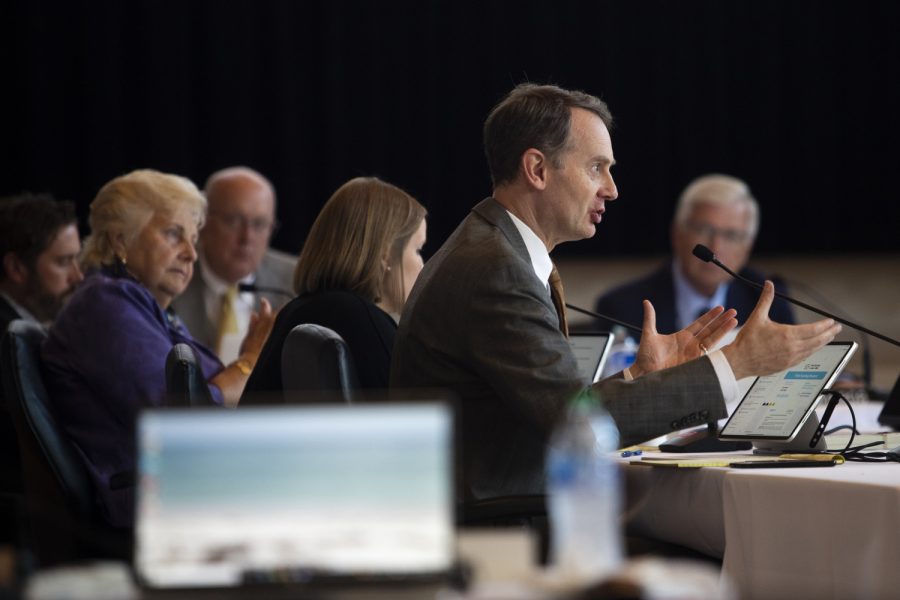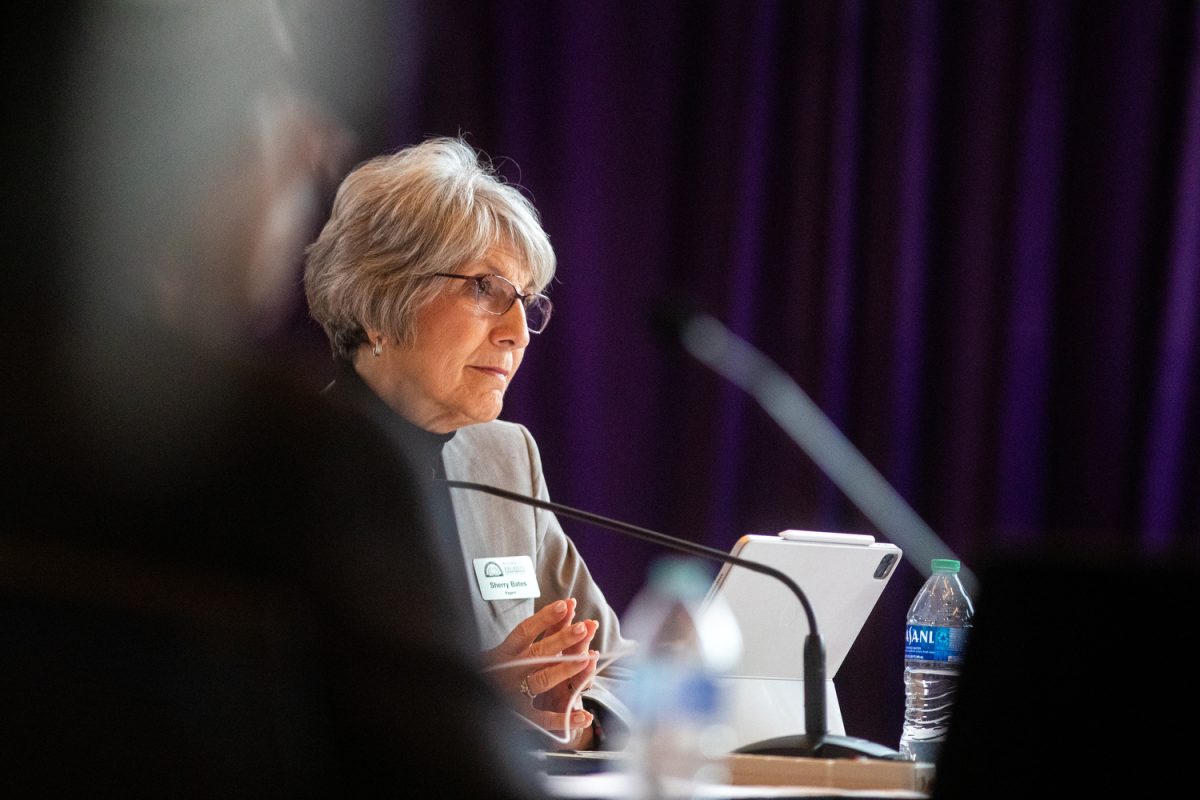University of Iowa Student Government officials relaunched their Wingman campaign Sept. 19, and the program has received mixed reactions from students.
Be Safe, Be Smart, Be a Wingman is the tagline of the latest initiative of the Wingman campaign. The campaign hopes to make students more aware of dangerous situations at parties and other social events, look out for their friends, and use UISG’s program SafeRide, which offers a free taxi service for students once a semester.
UISG President Nic Pottebaum said 605 students signed up during the Sept.19 event. Upon signing up, students received a free T-shirt, a business card with emergency-contact information, and a handout describing what students should do as a Wingman.
Pottebaum said the cost of the event was around $250, including posters, handouts, and business cards. Much of the supplies — including the T-shirts — had been paid for by the last student-government administration.
UI sophomore Gina Schultz signed up for Wingman at the event. She said the free T-shirt, and the fact that her friends were also signing up for the program, persuaded her.
“I think a lot of students aren’t aware about things like this [at parties],” she said. “But I’ll wear my T-shirt and look out for friends and strangers.”
However, some think programs such as Wingman may be ineffective.
“I don’t know how effective it’ll be,” said UI sophomore Tom Glauer. “It’s a good idea and makes sense, but hopefully, people will still use the buddy system.”
UI senior Brennan Ayres said he believes the university lacks in programs such as Wingman.
“People would look out for friends, but they’d turn a blind eye to people they didn’t know,” he said.
Pottebaum said the initiative is about students being proactive and realizing when situations will become dangerous.
“Students recognize they have to be safe in party environments,” he said. “But realizing that a friend is too drunk to drive, or if they’re going out with someone, that’s where you have to watch out for people and let them know what’s going on. That’s what Wingman is about.”
Karla Miller, the executive director of the Rape Victim Advocacy Program, said the concept of Wingman is consistent with other efforts on campus to promote safety, such as the Consent and Respect campaigns and the Antiviolence Coalition.
“Raising awareness and encouraging [students] to stay safe is absolutely vital,” she said. “We’re very pleased with the continued support of UISG to keep the campus safe.”
However, Miller said, encouraging students to watch out for each other is only half the battle.
“There’s also the attitude of objectifying women and marginalization of groups of people that we need to address,” she said. “Confronting these behaviors can be a powerful tool and send a message to violators that those behaviors are unacceptable.”
In addition to giving students information about emergency services and watching out for friends, Wingman also encourages students to sign up for Red Watch Band training, which will train participants in CPR and alcohol-bystander training.
The Red Watch Band program is in its fourth year at the UI, and it has trained more than 1,400 students, according to the program’s website.
The Wingman initiative was originally announced in November 2011 by the previous UISG administration. Pottebaum said the current student government didn’t want to launch the Wingman campaign until SafeRide was available.
The name of the initiative faced some controversy last year when UISG announced it, and Pottebaum said there are legitimate concerns about the connotations the term Wingman brings, yet he wants to change the way it is used.
“We want to rebrand Wingman as a positive thing,” he said.






